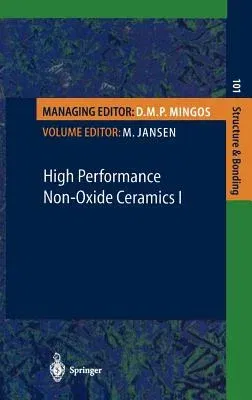The nitrides and carbides of boron and silicon are proving to be an
excellent choice when selecting materials for the design of devices that
are to be employed under particularly demanding environmental and
thermal con- tions. The high degree of cross-linking, due to the
preferred coordination numbers of the predominantly covalently bonded
constituents equalling or exceeding three, lends these non-oxidic
ceramics a high kinetic stability, and is regarded as the microscopic
origin of their impressive thermal and mechanical durability. Thus it
does not come as a surprise that the chemistry, the physical properties
and the engineering of the corresponding binary, ternary, and even
quaternary compounds have been the subject of intensive and sustained
efforts in research and development. In the five reviews presented in
the volumes 101 and 102 of "Structure and Bonding" an attempt has been
made to cover both the essential and the most recent advances achieved
in this particular field of materials research. The scope of the
individual contributions is such as to address both graduate students,
specializing in ceramic materials, and all scientists in academia or
industry dealing with materials research and development. Each review
provides, in its introductory part, the chemical, physical and, to some
extent, historical background of the respective material, and then
focuses on the most relevant and the most recent achievements.

